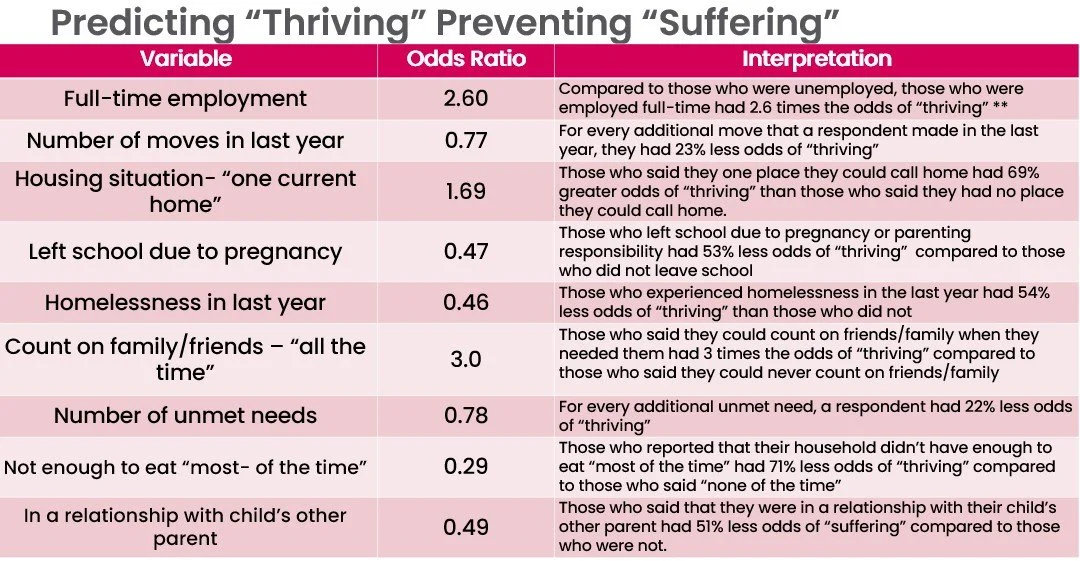[January 18 2024] Testimony to DC Council Committee on Health re: Department of Health
To: The Honorable Christina Henderson, Chair, DC Council Committee on Health
Members of the Committee on Health
From: Patricia Quinn, VP of Policy and Partnerships, DC Primary Care Association
Re: Oversight Hearing for DC Department of Health
Date: January 18, 2023
The DC Primary Care Association (DCPCA) works to build a healthier DC by sustaining community health centers, transforming care delivery, and advancing racial and health equity. Our strategic focus areas include:
• Value-based reimbursement
• HIT innovation for health centers
• Cross-continuum stakeholder relationships
• Equity-oriented programs and innovations
• Health center infrastructure and operations
Our collaborators in this work include community health centers, serving almost 200,000 patients in every ward of the city. Our members serve District residents most impacted by inequity—95% of health center patients are racial or ethnic minority, 88% have incomes below 200% of the federal poverty level, and 37% are best served in a language other than English. Health centers are at the nexus of efforts to rewrite DC’s story of health inequity, and we are grateful for the partnership we have forged over decades with the DC Department of Health. We appreciate the opportunity to provide testimony regarding oversight of DC Health.
Shared Focus on Primary Care
DCPCA’s partnership with DC Health spans multiple bureaus across the Community Health Administration (CHA) and includes work with Health Emergency Preparedness and Response Administration and the Office of Health Equity. CHA is particularly critical to our shared work to build and sustain the robust primary health care system DC must have to improve health outcomes and increase health equity.
A recent Washington Post article on the health of the District’s Black residents indicates they were almost three times as likely to die in D.C. as White residents in 2022 and that gap has grown steadily since the 1960s. DCPCA’s opinion letter response makes it clear that the road to health equity runs through a primary care system that ensures that every patient and provider benefits from a lifetime of human caring and connection. Yet the sector has suffered from chronic underinvestment. With the right policy framework in place, no organizations are better positioned to provide this than our member community health centers.
DC Health is an important voice and thought partner for DCPCA and for sister health sector agencies in championing exactly the kind of preventative services primary care is designed to deliver. New payment models and care delivery methods such as the Center for Medicare and Medicaid Services (CMS) AHEAD model (Advancing All-Payer Health Equity Approaches and Development) center primary care as the quarterback of an improving health system. CMS is testing the model over 10 years “to allow time for early investments in primary care services and enhanced care coordination to result in better health and lower spending.”
Workforce
DC Health leads the District’s cross-sector work to identify health workforce needs and devise strategies to address existing and emerging gaps. DCPCA urges continued mining of the recommendations from the Mayor’s Healthcare Workforce Task Force. District focus on apprenticeships, internships, and career pathways can make a meaningful difference in the capacity and quality of our health system. The Primary Care Office (PCO) at DC Health supports a range of primary care workforce initiatives that are important tools for a primary care system confronting significant challenges in finding and retaining staff. Openings for primary care physicians, nurse practitioners, and physician’s assistants that go unfilled impact residents’ access to the most important preventative care and chronic disease management. The PCO also explores new care models in partnership with our FQHC members and is a voice for the importance of primary care across the health ecosystem.
Another key workforce area with the potential for significant impact on addressing social drivers of health is the Community Health Worker (CHW) role. As the Center for Medicare and Medicaid Services (CMS) and our Department of Health Care Finance adopt policies to enhance the role of connectors in the health system, we will look to DC Health to establish competency-based certifications endorsed by the field.
Emergency Preparedness
DCPCA and the Health Emergency Preparedness and Response Administration (HEPRA) have deepened an already-strong partnership to ensure the District’s community health centers are prepared to play a lead role in emergency response. Additionally, HEPRA understands the direct links between safety and security in health care workplaces and meeting our workforce challenges. We have appreciated investment in readiness to confront the range of concerns that can emerge when providing care in environments confronting poverty, racism, trauma, and stress.
DC3C: DC Health Colorectal, Breast and Cervical Cancer Program
DCPCA partners closely with the DC Health Cancer and Chronic Disease Bureau in its work to improve equity in cancer screening and care outcomes. DC3C invests in a range of strategies to increase rates of on-time cancer screenings including access to transportation and navigation support. DC Health resources several cancer navigators at DCPCA who are deployed to community health centers to embed with care teams and support patients in getting needed cancer screenings. Increasingly, health systems are recognizing the powerful role of a range of patient “connector” roles in achieving health equity. Our patient navigators are trusted sources of information and support that can help patients confront fear, logistical obstacles, and other barriers to receiving the screenings that will extend lives and improve quality of life for many health center patients.
Office of Health Equity (OHE)
DC Health OHE is a most-valued partner to DCPCA in meeting our mission to advance racial and health equity. DC Health’s groundbreaking Health Equity Report set the stage for health system action to address health-related social needs and structural drivers of health. OHE’s work led to increased recognition of the significant role of social inequity in creating inequitable health outcomes, and led to consideration of policies that leverage health care dollars to meet social need. Additionally, the OHE understands the critical impacts of factors such as health literacy and implicit or explicit bias on patient engagement in care and patient outcomes.
Central to DCPCA’s efforts to achieve racial and health equity is our work to establish patient-reported well-being measures. Again, DC Health OHE is a key thought partner in how we might utilize a well-being measure to hold health system payers and providers and other cross-sector investors accountable for improvements in individual and community well-being. We have tested an approach across Ward 8 with the Ward 8 Digital Collective resulting in data included in the Ward 8 Community Economic Development Plan. Additionally, we just released a report on young parent well-being All Young Families Thriving that lifts the voices of young parents to show policymakers what thriving looks like.We look forward to opportunities for collaboration on well-being in the year ahead.
Maternal Health
The Family Health Bureau at DC Health houses multiple critical initiatives focused on expectant and parenting families. Investment in home visiting approaches and other programs designed to connect families to social support and services help ensure families thrive. Our All Young Families Thriving report highlights the interconnectedness between economic, education, housing and food security in family well-being.
DC Health works cross-generationally and across sectors to support District families.
Thank you for the opportunity to highlight the important work of DC Health as we work to ensure a full healthy life for every District resident.

